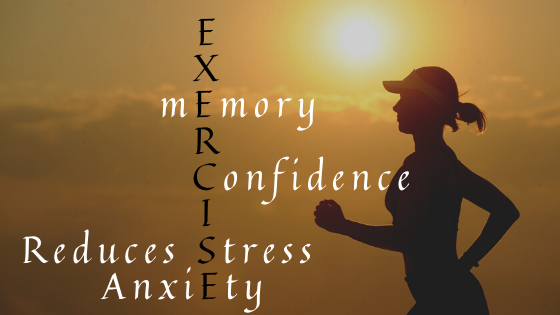Your cart is currently empty!

Get Fit to Speak Up! 4 surprising reasons why exercising can help your Public Speaking
Exercising and public speaking, two activities that are rarely associated. Therefore, it might surprise you to hear that exercise can help your public speaking in multiple ways.
How physical exercise acts on the human body
The impact of physical activity in the body goes way beyond the aesthetic benefits. Movement has a vital role in helping your body to deliver oxygen and nutrients to your tissues and brain. Exercising makes your cardiovascular system work more efficiently.
It leads to a better heart and lung health, which provides you more energy to complete your daily tasks.
The impact of exercising in your Public speaking abilities
he impact exercising has in your mind affects many areas of your personal growth, including public speaking. Feeling good and confident will improve your communication skills.
1. Memory and Learning
Avoiding a sedentary life will help you to improve your cognitive function. You’ll keep your thinking, learning, and judgment skills sharp, as well as your memory. Regular physical activity increases the number of cells produced in the hippocampus, responsible for memory and learning.
Forgetting what you have to say in one of the biggest fears for many speakers. Exercising not only improves your memory, but also helps you to make decisions faster and adapt to the audience as you speak.
Furthermore, regular exercise also provides you a better sleep – you’ll fall asleep faster and sleep deeper – and sleeping has protective effects on our brain.
2. Boosts your confidence and reduces stress
A good public speaker is confident and assertive. Exercising improves your self-esteem and boosts your self-confidence. Obviously, the physical effects on your body had their share of responsibility in this, but it is more than that.
During physical activity, your body releases endorphins and serotonin, and they improve your mood. In fact, serotonin is a neurotransmitter with an essential role in mood and depression. More important, a regular exercise routine helps to decrease your general stress levels. A low-stress rate is a significant advantage advantage when you have a speech to deliver.
3. Fights anxiety
The bigger problem you face as a speaker is not the audience or the lack of valuable information — not even weak preparation. What really lets you down during a speech is anxiety.
Anxiety kicks in right before you step on stage and it is the main reason for you to go blank, stutter, or speak too fast to be understandable. This is the point where exercising can be quite beneficial for you.
Physical activity fights anxiety. Exercising some hours before a speech (never exercise right before you go into the stage, at that point, stick with some stretching to help the relaxation process) will decrease the physical symptoms that make you feel overwhelmed.
The movement stimulates various brain chemicals that make you feel happier, more relaxed, and, consequently, less anxious. Most of the time, all you need to give a good speech is to feel confident and calm. Imagine all you could do with your presentation if you could put that anxiety away!
4. Physical activity can work as therapy
You certainly heard about how exposure therapy can be beneficial to overcome the fear of public speaking. Some studies point to the possibility of physical activity works as a type of exposure therapy.
If you think about the physical reactions your body produces during exercise – such as heavy perspiration or increased heartbeat – you’ll realize that they are the same ones triggered by anxiety. For that reason, some studies defend that physical activity will allow us to associate these symptoms with safety instead of danger – working, this way, like exposure therapy.
You can even try to train your speech while practice some light exercise, triggering the anxious response in your body. When it comes to the time to do the real speech, you will be used to those feelings and, consequently, more relaxed
Best exercises for speakers
Physical exercise can include an enormous of different activities, so I made a little research on those who can be of a better use for a speaker.
- Walking – taking a walk, maybe while you’re listening to some of your favorite music, is one of the most relaxing activities. Studies are confirming that strolling during a therapy session, for example, instead of sitting quietly in an office, often helps patients to relax and open up.
- Jogging – Jogging is an excellent exercise to fight anxiety. There are plenty of professionals that say they like to do a morning run to “burn off the nerves” before a speech.
- Cardio – Practicing some cardio improves your general well-being. Feeling better with yourself will improve your communication skills.
These seem to be the most helpful exercises to relieve anxiety, but it is vital that you feel good while practicing. You can find dozens of activities that might work perfectly for you, other than the ones cited before.
However, don’t forget that the exercise shouldn’t be executed right before the speech. Give your body time to recover and feel good. In the hour before your presentation, opt by stretching and relaxing your muscles instead.
Just move!
Didn’t you practice much exercise later? Or maybe you never did. Then, this information might sound a little scary. Don’t worry. Research showed that one single session of physical activity increases brain functions and boosts your mood.
If you suffer from anxiety when you need to give a speech or in any other situation of your life, you may want to rethink your lifestyle.
Smits and Otto(2011), in their book Exercise for mood and anxiety: Proven strategies for overcoming depression and enhancing well-being, conclude that regular workouts can help people “prone to anxiety become less likely to panic when they experience those fight-or-flight sensations.”
Cátia is a psychologist who is passionate about helping children develop and train social skills.


Leave a Reply